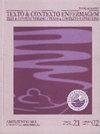KNOWLEDGE AND PRACTICE OF NURSING IN SICKLE CELL DISEASE AND HEMOGLOBINOPATHIES IN PRIMARY CARE
Q2 Nursing
引用次数: 0
Abstract
ABSTRACT Objective: to investigate the level of knowledge of nurses in Basic Health Units and their engagement in monitoring patients with sickle cell disease and other hemoglobinopathies. Methods: this is a qualitative, descriptive-exploratory study, carried out with 12 nurses from basic health units in the municipality of Santa Luzia/Minas Gerais between August 2018 and February 2019. The semi-structured interview was the technique used for data collection, which was analyzed using Content Analysis. Results: the analysis of the interviews emerged in the construction of three categories: understanding of sickle cell disease, risk factors, and alterations on physical examination; nursing care at the health unit according to the recommendation of the Ministry of Health; obstacles and facilitators for the tracking and identification of patients. Discourse analysis highlighted: the outstanding presence of misconceptions regarding sickle cell disease; the absence of effective follow-up of patients in the area covered by the nurse; and the non-existence of a positive sickle cell disease patient link with primary care. Conclusion: although nursing plays a fundamental role in monitoring and assisting patients with sickle cell disease, the study revealed a significant gap between care recommendations and practice in basic health units.初级保健中镰状细胞病和血红蛋白病的护理知识和实践
摘要目的:了解基层卫生保健单位护士对镰状细胞病及其他血红蛋白病患者监测的知识水平及参与情况。方法:这是一项定性、描述性探索性研究,于2018年8月至2019年2月期间对圣卢齐亚/米纳斯吉拉斯州市基础卫生单位的12名护士进行了研究。半结构化访谈是用于数据收集的技术,使用内容分析对其进行分析。结果:访谈的分析出现在三个类别的构建中:对镰状细胞病的理解、危险因素和体格检查的改变;根据卫生部的建议在保健单位提供护理;追踪和识别患者的障碍和促进因素。话语分析强调:对镰状细胞病存在明显的误解;在护士所负责的区域内缺乏对患者的有效随访;不存在镰状细胞病阳性患者与初级保健有关。结论:尽管护理在监测和协助镰状细胞病患者方面发挥着重要作用,但研究显示,在基本卫生单位,护理建议与实践之间存在显著差距。
本文章由计算机程序翻译,如有差异,请以英文原文为准。
求助全文
约1分钟内获得全文
求助全文
来源期刊

Texto Contexto Enfermagem
Nursing-General Nursing
CiteScore
1.80
自引率
0.00%
发文量
85
审稿时长
>12 weeks
期刊介绍:
Texto & Contexto Enfermagem provides space for reflection and deepening of knowledge about issues of practice, teaching and research in health and nursing, at national and international levels.
The journal is published quarterly in the rolling pass or Continuous flow mode, accepting manuscripts in Portuguese, English or Spanish, in the categories original article, reflection, experience report and review. Contributions designated to the dissemination of unpublished original research results are prioritized for publication. Special issues are published at the discretion of the Board of Directors and Associate Editors. All manuscripts are published in two versions, one of which is English, aiming to cover the largest number of readers worldwide.
The editorial policy of Texto & Contexto Enfermagem is based on rigorous quality criteria for indexing and publishing (including technical and normative aspects, graphic and textual quality and excellence in scientific content); on responsibility for shared management between the Board of Directors, Editorial Board and Internal and External Editors Associates; and on the rigorous and constructive peer review, preserving the anonymity of authors and reviewers (double blinded).
 求助内容:
求助内容: 应助结果提醒方式:
应助结果提醒方式:


